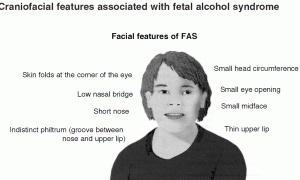8 hours are considered the ideal time to spend sleeping every night. Given that every day is combined of 24 hours, it means we ideally spend a third of our time on Earth sleeping.
Yet most of us can live a lifetime without having a real clue into what happens after we wish someone sweet dreams, so the following article asks to shed some light on the darkness.
Why Sleep Matters
Whether you’re out living a dream or providing for your family, the twenty first century seems to constantly leave us wanting more time. Spending a third of our lives asleep may sound like an unreasonable situation when we only get one life to live.
Fortunately, the time we spend sleeping is anything but a waste.
During sleep we :
– Grow different interior parts of our bodies, including brain functionality;
– Process and retain new information and experiences;
– Learn new things. Despite prior, contradicting results, researches are starting to discover some aspects of learning in some stages of sleep is possible;
– Strengthen our memory;
– Accumulate energy;
– Dismantle emotional stress;
– Improve our immune system and ensure our safety, as lack of sleep is known to cause accidents and heart attacks;
– And more.
Does Sleep Equal Being Unconscious?
Waking up from a deep sleep might resemble a feeling of coming back to consciousness in our minds. However, unlike when someone is unconscious, when we’re asleep, we’re still able to make voluntary movements, such as tossing and turning.
It’s also way easier to wake someone up from sleep than it is to help someone regain consciousness.
Sleep Cycles
A sleep cycle is the process we go through from being awake to slowly falling into deep sleep, then waking up once more. Each sleep cycle takes between an hour and a half and two hours to end.
We’ll explain the different stages of each sleep cycle in the following sections.
Sleep Stage #1
The first stage of sleep happens in the crossroads between being fully awake and being asleep. Your eyes may open on and off, and you’re still aware of your surroundings. You fall in and out of sleep, and slowly start to lose awareness of what goes on around you.
Sleep Stage #2
You start heading toward sleep. Your sleep is now light and it’s easy for you to wake up. Moreover, you might not even notice you fell asleep. You’re still somewhat aware of what goes on in and around your bedroom, yet less than before.
Your muscles and your eyes stop moving during stage 2 as your body relaxes.
Sleep Stage #3
This is where the best, deepest sleep takes place. Your muscles and eyes are completely relaxed and still, and your breathing rate decreases.
Sleep Stage #4
Stages 3 and 4 are sometimes counted as one, as they both provide the deepest sleep of the sleep cycle.
It’s pretty challenging to wake somebody up when they’re in the middle of stage 4, because your body is immersed in all the healing and growing processes we mentioned above.
When you finally succeed at waking someone up from this stage – or if, for some reason, you abruptly wake up during this stage yourself – the sleeping person is bound to feel a little dazed for a few moments.
Since the muscles are so relaxed, this is the sleep stage where kids (and some adults) find themselves wetting their beds or sleep walking. Some people also speak in their sleep during this stage, but since they’re not yet dreaming, researchers are unclear what their words signify.
Sleep Stage #5
At long last, after making the transition from being awake to falling asleep to deep sleep, we start dreaming.
Dreams are our window to the subconscious, to our fears and emotions, and to issues we don’t always want to deal with but can’t shake off. Irrational things can happen in our dreams, and the brain reacts to them as if we were awake – or rather, almost as if we were awake.
To be accurate, while the brain functions and our eyes move faster than they do while awake, we’re actually paralyzed from the neck down during stage 5 of our sleep.
The brain shuts down our ability to move to ensure that we don’t physically react to our dreams by kicking the person next to us, jumping out the window or think we’re riding a horse in full swing, which could get us bumping into our furniture or walls.
4-6 More Times, Please
Some people wake up when sleep stage 5 ends. Others continue sleeping, moving back to stage 2 and restarting the process from there.
However, waking up in the middle of stage 5 would lead you right back into dream mode when you drift back to sleep, as you cannot begin a new sleep cycle without ending the current one.
All in all, you keep reading to get 7-9 hours of sleep every night because it’s important to ensure you go through 4-6 great sleep cycles if you want to enjoy the benefits that come with sleep. Once you do, you’ll wake up refreshed with a sharp mind, ready to excitedly carpe diem.
What’s your tip for getting the best sleep possible? What’s your greatest challenge when it comes to sleep?



Leave a comment
You must login or register to add a new comment.